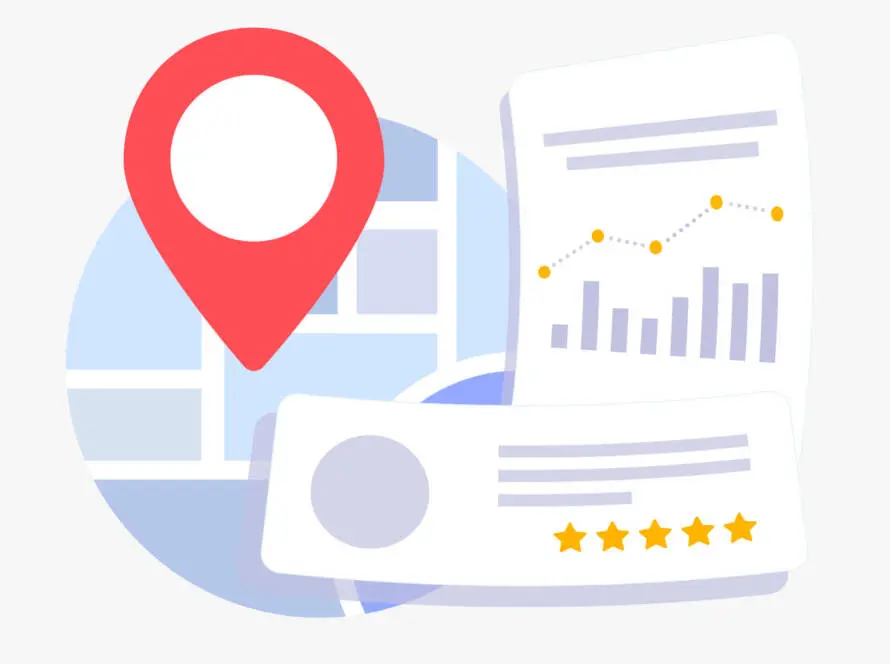Every day, Google and other search engines process billions of searches for products, services, answers, and more. These searches offer businesses opportunities to appear prominently in results. By providing relevant content on their websites, businesses can address these searches. In this article, we’ll explore what SEO is and why you should integrate it into your digital marketing strategy to improve your SEO.
What is Search Engine Optimization?
Search engine optimization (SEO) involves enhancing a website’s content, structure, and online presence to boost its visibility and ranking in search engine results pages. This includes optimizing technical configuration, content relevance, and link popularity to make pages more easily discoverable, relevant, and popular in user searches, ultimately resulting in better rankings by search engines.
SEO techniques like keyword research, on-page optimization, link building, and technical SEO make websites appealing to search engines and users. Google prioritizes valuable content for users. Businesses using SEO will be found in searches, leading to more website traffic, conversions, and sales.
Why is it important for your business to use SEO?
SEO is important for businesses because it helps you get noticed in search results without having to pay for pay-per-click (PPC) ads. Ranking well for relevant search queries can increase website traffic, leading to more revenue from converting visitors into customers.
SEO’s impact depends on your business and goals; for new products or short-term events, paid ads or other marketing may be better. However, many businesses, especially businesses that offer services, benefit from long-term SEO efforts, which help connect with potential customers over time. Overall, SEO practices benefit any business by increasing visibility and reaching more potential customers.
What should you look for in an SEO plan?
Creating an SEO plan involves key components: keyword research, content creation, website development, and link building. Understanding how Google search works and the factors it uses to determine results is crucial. Google aims to deliver relevant search results by crawling websites, indexing pages, and serving the most relevant content to users.
Google explains how search functions and what it uses to rank results. Google focuses on five factors:
- Meaning
- Relevance
- Quality
- Usability
- Context
As you develop your SEO plan, focus on these five factors. When conducting keyword research, creating content, and implementing on-page and off-page SEO, let these factors guide your decisions.
As you implement your plan, it’s important to understand the following:
- Keyword research involves researching, identifying, and prioritizing search terms to create content that ranks for those terms.
- SEO content development is about creating and optimizing content to answer search queries and rank for target keywords.
- On-page SEO focuses on improving website markup, like title tags and internal links, to support keywords and content.
- Off-page SEO involves actions taken outside your website to improve rankings and organic traffic, such as link building and backlink management.
- Technical SEO relates to the technical infrastructure of your website and its impact on SEO, including page speed, user experience, and mobile-friendliness.
- Local SEO optimizes your website and related properties to increase local visibility and traffic.
The benefits of SEO
- SEO boosts organic search, which is one of the best traffic sources for companies and should be consistently developed and improved for your business.
- SEO is typically a more cost-effective way to drive traffic to your website compared to channels like paid search or paid social. When companies invest in SEO over time, they will generate more traffic at a lower cost.
- SEO establishes trust, credibility, and brand recognition. Consistently appearing in search results creates the impression that your brand is a reliable and trustworthy source of information.
- SEO helps you connect with customers throughout their buying journey. You can engage with potential customers at different stages as their searches change over time.
- SEO is a Scalable Growth Channel. It’s one of the few ways to acquire customers that can effectively scale. Think of SEO as a continuous cycle: your actions, like creating content, lead to outcomes such as rankings, traffic, and customer acquisition.
- Adhering to SEO best practices like good website design, usability, and quality content will boost your overall marketing performance. Even if your website doesn’t attract organic traffic from search results, having a site with excellent user experience and valuable content is still beneficial.
- Optimizing for search helps you keep up with trends and changes in consumer behavior because keyword research reveals rising and declining trends.
- SEO results are easy to measure allowing you to gauge how your performing and whether you need to make adjustments. With tools like Google Analytics, you can track organic traffic and link conversions to SEO and specific website content.
- Investing in SEO helps you stay ahead of your competition. It is essential for keeping up with and eventually beating your competitors in search rankings, which is crucial for outperforming them as a business.



